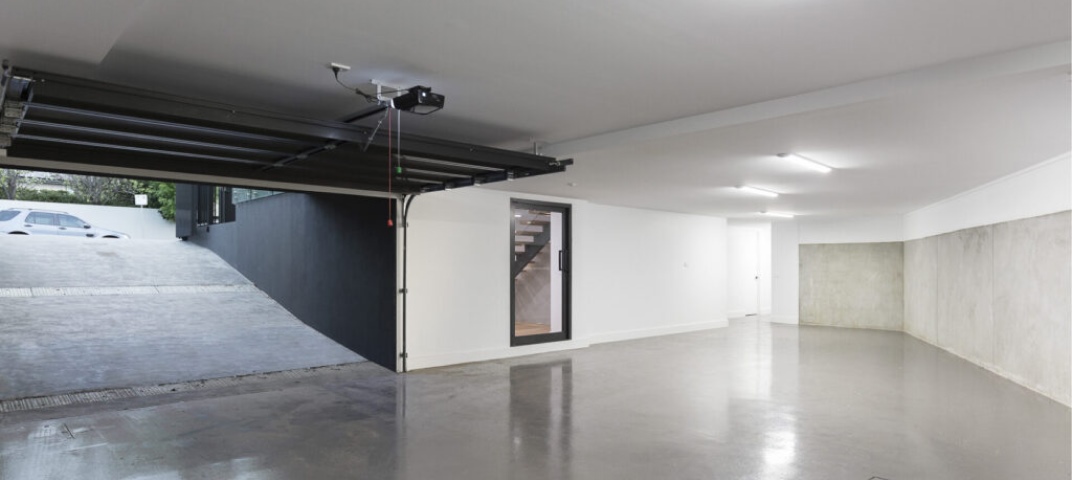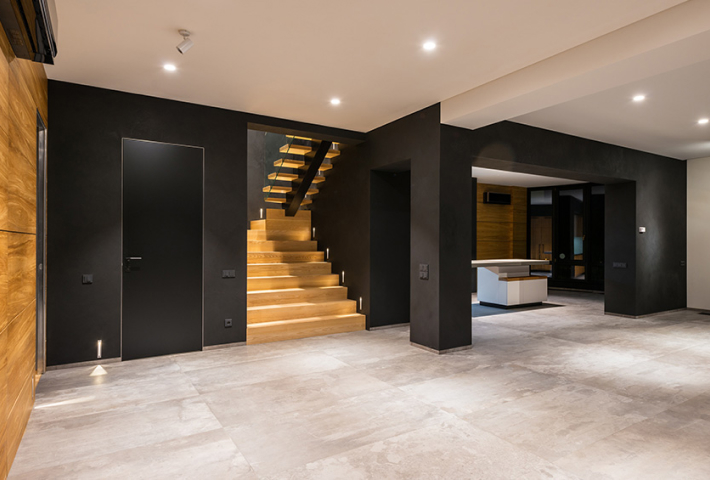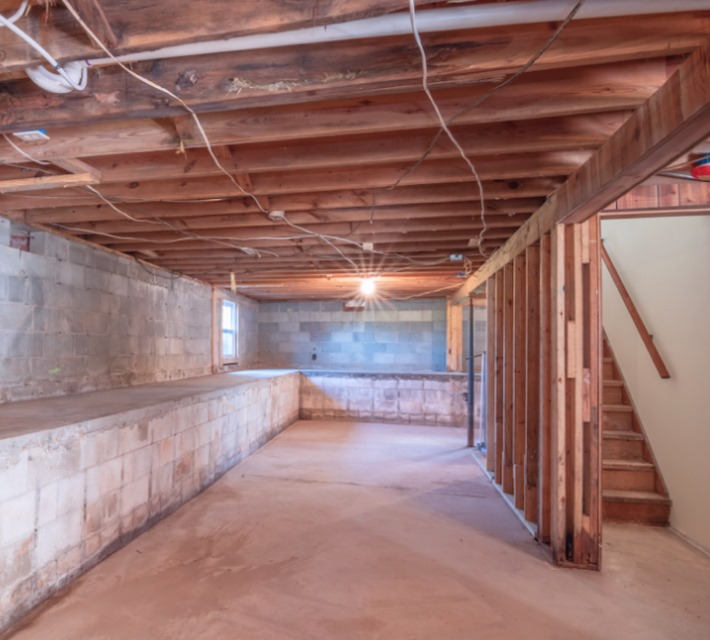Basement and Under House Renovations
Renovating a basement or under-house space can be an exciting and transformative experience for any homeowner. However, undertaking a basement or under-house renovation can also be a daunting task.

Explore the ins and outs of basement and under-house renovations, Renovation Works offers expert advice and insights to help guide you through the process and bring your renovation dreams to life.
.jpg)
Basement Renovations and Remodelling
Basement remodelling can serve many purposes for a home, including extra living space, a home office, a gym or fitness room, storage, rental income, and a playroom or recreation room. These spaces can provide privacy and comfort for family members or guests, a quiet and secluded workspace, a dedicated area for workouts and exercise equipment, additional storage space, a self-contained rental unit, and a designated space for games, hobbies, or relaxation.
When choosing the best use for a renovated basement or under-house extension, several factors should be taken into account. Firstly, it is important to determine your needs and priorities based on family size, lifestyle, and future plans. The available space, layout, ceiling height, and natural lighting should also be assessed to select a purpose that suits the area. It is crucial to choose a purpose that fits within your budget and does not require extensive renovations.
Consulting with a professional basement contractor or architect can provide expert advice on evaluating the space, creating a design plan, and identifying potential issues. Finally, it is important to research permits and inspections required for the renovation and ensure compliance with local regulations and codes.

In New Zealand, basement renovations typically require a range of council consents and approvals, depending on the scope of the renovation and the location of the property:

Basement Renovation Planning and Consent
1.
Resource Consent: Required for basement renovations affecting the environment. Resource consent ensures compliance with environmental standards. Application submission and fees are necessary. Approval duration varies with the complexity and community engagement level.
2.
Building consent: This covers plumbing, electrical, and other permits required for a renovation. Depending on the location and nature of the basement renovation, additional permits and approvals may be required, such as resource consents for heritage or coastal properties, or building consent for earthquake-prone buildings.
Working with a professional contractor and consulting with local authorities is essential to ensure that your renovation or under-house garage conversion plans comply with all necessary regulations and codes.
Addressing existing water problems before renovating a basement is crucial for several reasons.
Firstly, moisture in a basement can cause mould growth which can lead to serious health risks, especially for people with respiratory problems. Mould spores can trigger allergic reactions and respiratory issues.
Secondly, water damage can weaken the foundation, cause cracks, and compromise the structural integrity of the house, resulting in expensive repairs and safety risks.
Thirdly, a damp basement can decrease the home’s value, making it less attractive to potential buyers. Ensuring a dry and mold-free basement can increase its value, making it a worthwhile investment.


Basements often suffer from a lack of natural light due to their location below ground level. However, ignoring this issue can result in a dark, uninviting space that can negatively impact occupants’ moods and well-being. A bright basement with natural light can boost mood, improve sleep, and increase vitamin D, while a dark basement can cause Seasonal Affective Disorder (SAD). Addressing light can create a usable space for activities such as a gym, office, or family room. A lack of light can also make the space feel small and uninviting while addressing light can create a comfortable and inviting environment. A bright basement can increase home value and appeal to buyers seeking open, inviting spaces.
To address the lack of natural light in a basement, there are several strategies that can be employed, such as installing larger windows, adding skylights, using lighter colours on walls and ceilings, incorporating mirrors, and utilising artificial lighting.
The best insulation for a basement is spray foam insulation, as it provides an air-tight seal that prevents heat loss and moisture buildup. Fibreglass batt insulation is a more affordable option but may not provide the same level of insulation and moisture resistance.


Basements can be damp and prone to moisture, which means traditional flooring options like hardwood or carpet may not be ideal. However, there are several alternative flooring options that are better suited for this environment. Tile is a durable and moisture-resistant option that comes in many styles and colours. Vinyl is affordable, easy to install, and highly resistant to moisture. It can also mimic the look of hardwood or stone. Engineered wood is another option that resembles hardwood but is more moisture-resistant due to its multiple layers. It is also easy to install and available in various finishes and colours.
Bathroom and Kitchen Basement Renovations
When planning to have a bathroom or kitchen in a basement or under-house, it is essential to consider several factors to ensure functionality, safety, and code compliance. Proper plumbing installation is crucial to avoid mould growth. Additionally, electrical work may be necessary for lighting, outlets, and appliances. Proper ventilation is necessary to prevent moisture buildup and mould growth. Basements and under-house areas require waterproofing to prevent water damage, and careful planning of the layout is essential to ensure efficiency and functionality while considering space limitations and the placement of plumbing, electrical, and appliances.


By properly planning and considering all of these factors, a client can create a functional and safe bathroom or kitchen in their basement or under the house.
To ensure a cohesive and inviting design for a basement or under-house renovation, it is important to consider the finishing touches. This includes coordinating the colour scheme with the rest of the house and using flooring, paint, and furniture that blend with the overall design. Additionally, increasing the amount of natural light by installing larger windows or skylights, or using artificial lighting that mimics natural light, can create a brighter and more welcoming space. It’s also important to select durable and moisture-resistant materials that suit the space’s unique needs, such as flooring, wall coverings, and cabinetry. Finally, incorporating artwork, decorative accents, and plants can add character and warmth while tying the design in with the rest of the house.
Basement Renovation Costs
Basement renovation costs in New Zealand can vary widely depending on the scope of the project, the level of finishes, and other factors such as the location and size of the space:
1.
A basic basement renovation that includes painting, flooring, and some electrical work can cost around $10,000 to $20,000.
2.
A mid-range renovation that includes adding walls, upgrading electrical and plumbing, and adding some finishes such as a bathroom or kitchen can cost around $30,000 to $60,000.
3.
A high-end renovation that adds luxury finishes such as custom cabinetry, high-end flooring, and a high-end bathroom or kitchen can cost upwards of $80,000 to $150,000 or more.


If you are thinking about an under-house renovation, get in contact with us today. Our experienced team can answer any questions and help guild you through the process.

If a renovation is on the cards for the future, whether you want to get started in a month or a year, a free, no obligations consultation is the first step in the right direction.
